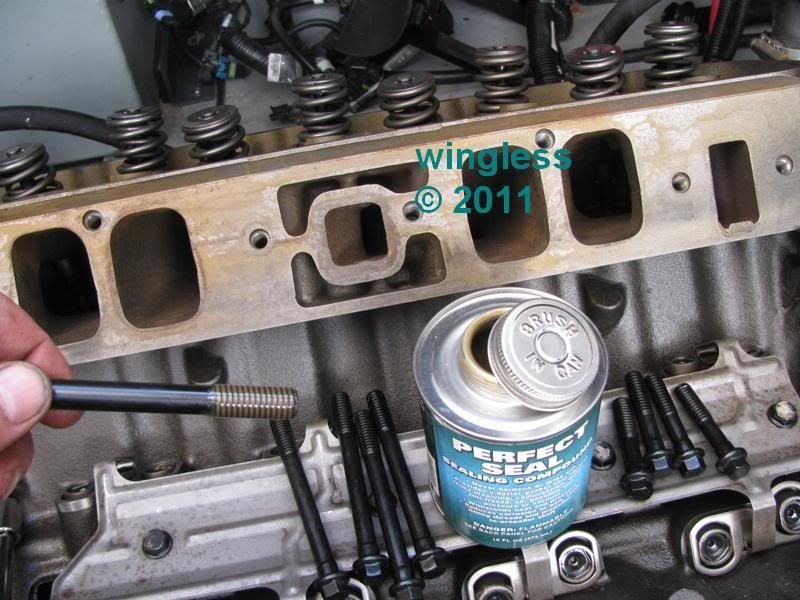Re: Piston Cylinders All Have Water In Them?
With what you describe, I'd definitely agree that it's time for a new engine. Cracks like that don't just go away.
A 350 Vortec, stock, puts out about 255 to 270 HP, depending on carb/fuel injection. If that's close to 300, then you are good. If he's done other work to it, it could easily get there. I do have a couple of things for you to think about:
- Is this built as a boat motor? If not, I wouldn't do it. Carb will be wrong, starter will be wrong, camshaft will be wrong, freeze plugs will be wrong; best case, it won't run that well and will wear out fast. Worst case the whole thing blows up. I know guys that do it (put auto engines in boats) and claim there aren't any problems. I just wouldn't do it myself.
- If it is a boat motor, with 100 hours on it, the price/trade seems fair. A new marine short block would run more like $1,800 to $2,500 depending on where you get it, and shipping. Throw in all the extras (gaskets, water pump, alternator rebuild, head rebuilds, etc) and you can get to $3k pretty easily. There just aren't that many good, used boat motors around, waiting to be dropped into a boat, primarily because of freeze damage.
- If you are doing the install, be sure to check for electrical compatability (do the plugs match). If this new engine has EFI, this could be a big deal. Take a really hard look at the new engine, compared to the old engine...if they are pretty comparable, then it could be a simple drop in. If pumps are in the wrong places, (or don't exist), it's more hassle. Make sure the outdrive connections are correct. The 305/350 came in two version, a 12 3/4 inch flywheel and a 14 inch flywheel. The old (two piece main seal) flywheels have a larger hole in the center, the new (one piece main) type (which is what the vortec probably is) has a smaller hole. My point is to make sure the outdrive will mate properly with the new engine's flywheel.
-I love the vortec heads. They are much better breathers than the older style.
- Once I had the vortec engine installed in my boat, I really wouldn't care what he took off the old engine as a part of the trade. Less for me to mess with on Craigs List. Just be sure you don't get stuck having to buy exhaust manifolds or some other part because you traded it away.
- And of course be sure to check out compression and leak down and for water in the oil, as well as a vaccum test to be sure what he is selling you is a sound engine. Trust and verify.




















